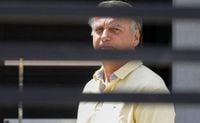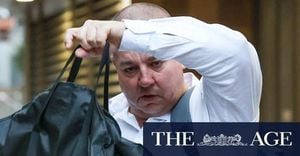Brazil’s political landscape was jolted on September 11, 2025, when the nation’s Supreme Court handed down a historic verdict: former President Jair Bolsonaro was convicted of attempting a coup to remain in power after his defeat in the 2022 presidential election. The ruling, marking the first time a former Brazilian head of state has been found guilty of coup-related crimes, has sent shockwaves through Latin America’s largest democracy and reverberated across the globe.
The Supreme Court’s First Panel, composed of five justices, voted four to one to convict Bolsonaro on a suite of grave charges. According to AP and Al Jazeera, these included attempting a coup, participating in an armed criminal organization, attempted violent abolition of the democratic rule of law, damage qualified by violence, and deterioration of listed heritage. The sentence: 27 years and three months in prison. Yet, despite the weight of the judgment, Bolsonaro will not be heading to a regular prison cell just yet. He remains under house arrest, with legal avenues for appeal still open—though experts suggest his chances of overturning the conviction are slim.
The details of the case paint a picture of a leader unwilling to accept electoral defeat. Prosecutors, as reported by AP and TIME, charged that Bolsonaro and his allies orchestrated a multi-pronged effort to undermine Brazil’s democracy. The evidence included convening Cabinet and military officials to discuss an emergency decree that would suspend election results, casting doubt on Brazil’s electronic voting system, and drafting a decree to annul the 2022 election outcome. The campaign culminated in the January 8, 2023 riots, when Bolsonaro supporters stormed and vandalized federal government buildings in Brasília, aiming to force a military intervention.
Justice Carmen Lúcia, one of the four justices voting to convict, declared there was “ample evidence that Bolsonaro acted with the purpose of eroding democracy and institutions.” Justice Alexandre de Moraes, who oversaw the case, added that Bolsonaro’s actions from 2021 through January 2023 constituted a deliberate attempt to subvert the will of the people. Only Justice Luiz Fux dissented, arguing in a marathon 13-hour speech that the evidence was insufficient to convict Bolsonaro and that he should be acquitted of all charges.
The fallout from the ruling has been immediate and intense. Bolsonaro’s legal team, led by Fabio Wajngarten, condemned the sentence as “absurdly excessive and disproportionate,” vowing to appeal both domestically and internationally. According to TIME and Al Jazeera, Bolsonaro’s lawyers plan to bring the case before the full 11-member Supreme Court, though legal experts believe success is unlikely given the lack of a second dissenting vote—a requirement for such appeals to proceed.
Bolsonaro’s supporters have not been silent. In the days leading up to and following the verdict, tens of thousands took to the streets in Brasília, Rio de Janeiro, and São Paulo, waving banners and chanting in support of the former president. Counterprotests by supporters of President Luiz Inácio Lula da Silva also erupted, underscoring the deep polarization gripping the country. Bolsonaro’s eldest son, Senator Flávio Bolsonaro, defiantly told reporters, “History will show that we are on the right side!” He also pledged that his father’s allies would push for an amnesty bill in Congress to clear the former president’s name.
The Supreme Court’s decision did not stop at Bolsonaro. Several of his top aides and former ministers were also convicted and handed lengthy prison sentences. Lt. Col. Mauro Cid, a close Bolsonaro aide, received two years in an open regime, akin to a halfway house. Gen. Walter Braga Netto, Bolsonaro’s 2022 running mate and former defense minister, was sentenced to 26 years. Other high-profile figures, including Adm. Almir Garnier Santos, Gen. Augusto Heleno, and Gen. Paulo Sérgio Nogueira, received sentences ranging from 19 to 24 years. These convictions, as TIME noted, targeted what prosecutors described as the “crucial core of the criminal organization.”
The international response has been just as charged as the domestic reaction. U.S. President Donald Trump, a self-declared friend of Bolsonaro, immediately denounced the ruling as a “witch hunt” and called the verdict “very surprising.” Trump drew parallels to his own legal battles in the United States, asserting, “It’s very much like they tried to do with me but they didn’t get away with it at all.” In July, Trump’s administration imposed a 50% tariff on Brazilian goods and sanctioned Justice Alexandre de Moraes, revoking his U.S. visa and those of his family and allies. Secretary of State Marco Rubio echoed Trump’s condemnation, promising that the United States “will respond accordingly to this witch hunt.”
Brazil’s Foreign Ministry, however, has pushed back, stating it would not be intimidated by what it called “threats” from U.S. officials. According to Al Jazeera, the possibility of further U.S. sanctions—perhaps targeting other government officials or expanding visa restrictions—remains in play, though the full scope of Washington’s response is uncertain.
Despite his legal woes and the electoral court’s ban on his candidacy until 2030, Bolsonaro has signaled he intends to run for president again in 2026. If the ban holds, he may instead throw his support behind a political heir—potentially his wife or one of his sons. As AP and TIME observed, Bolsonaro’s enduring popularity and the fervor of his base ensure he remains a formidable force in Brazilian politics, regardless of his personal fate.
This conviction also places Bolsonaro in the company of two other former Brazilian presidents who have faced criminal sentences in recent years. Fernando Collor de Mello, impeached in 1992 and later convicted on corruption charges, and Luiz Inácio Lula da Silva, who was imprisoned in 2018 for corruption before his conviction was annulled, both serve as reminders of Brazil’s tumultuous relationship with its highest office.
For now, Bolsonaro’s fate hangs in the balance. The Supreme Court has up to 60 days to publish its final ruling, after which his lawyers will have five days to file motions for clarification. Barring a successful appeal, Bolsonaro could eventually serve his sentence in a special facility, likely at the Federal Police’s main building in Brasília, rather than a standard prison—an accommodation for his status as a former president.
As Brazil grapples with the aftermath of this unprecedented verdict, the country stands at a crossroads. The conviction has deepened existing political divisions and raised urgent questions about the future of democracy in one of the world’s largest nations. Whether this ruling will mark a turning point toward greater accountability or fuel further unrest remains to be seen, but one thing is certain: Brazil, and indeed the world, will be watching closely.





